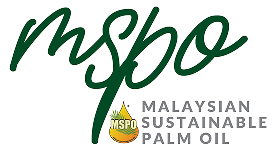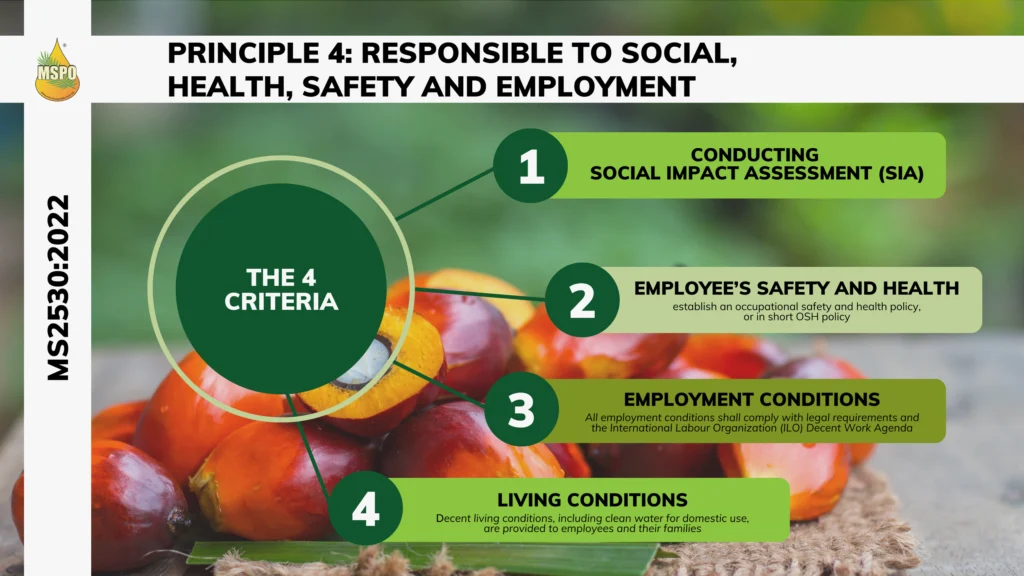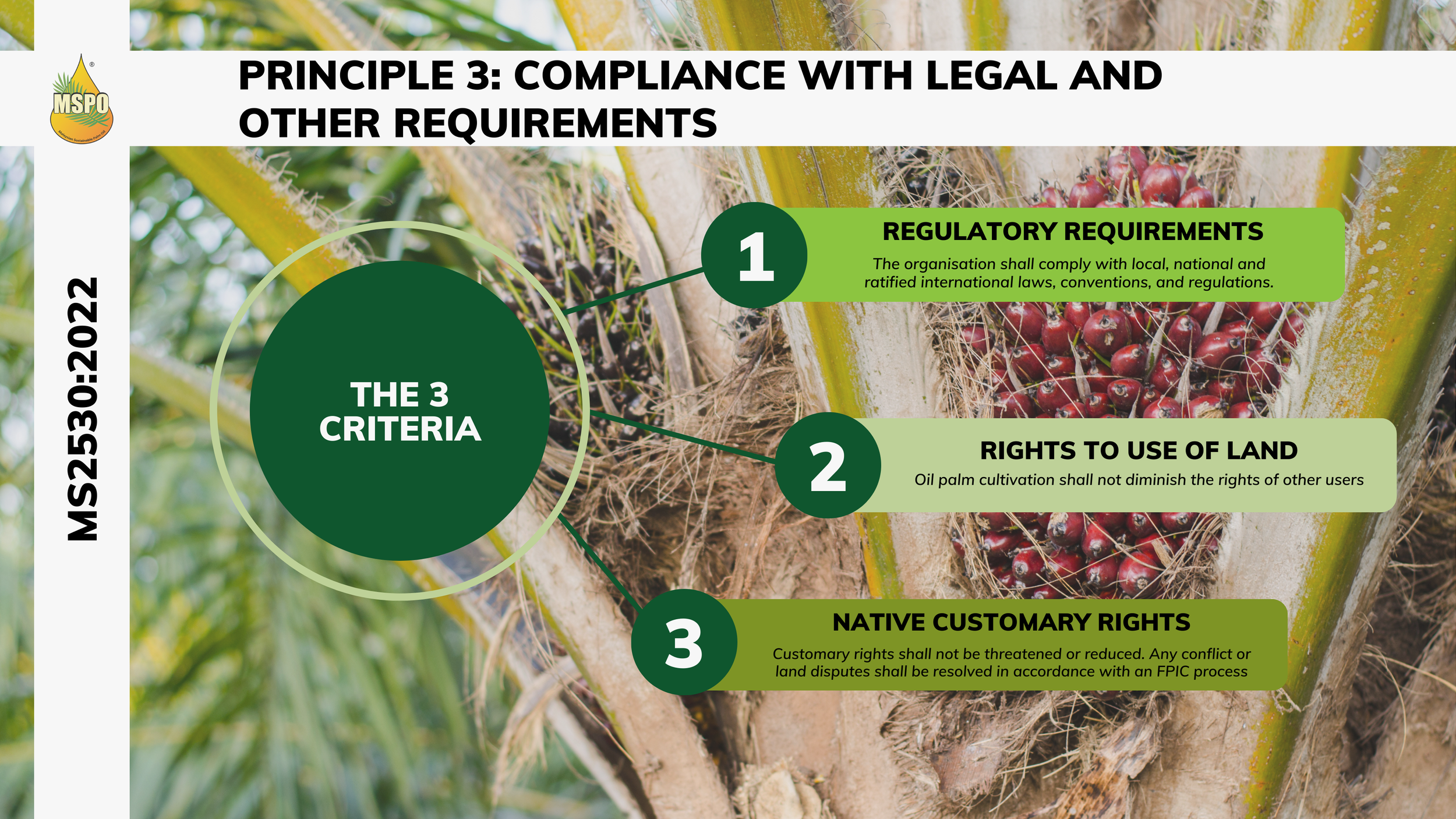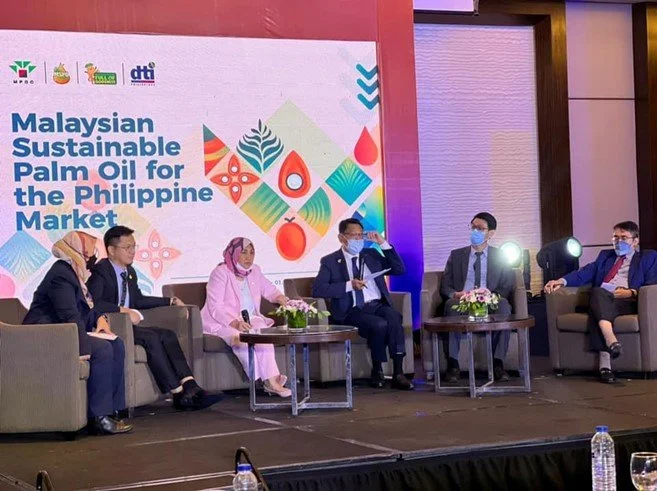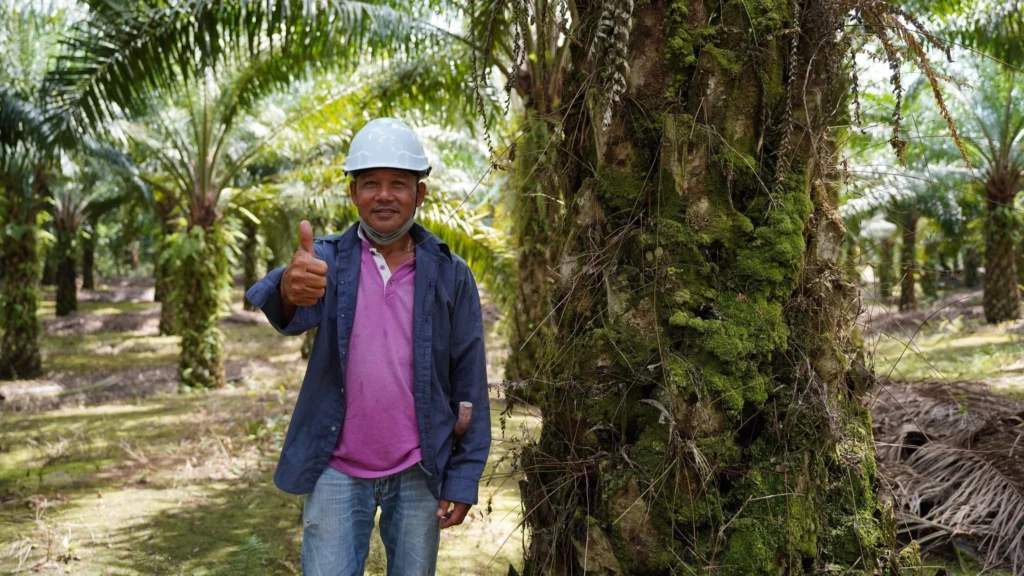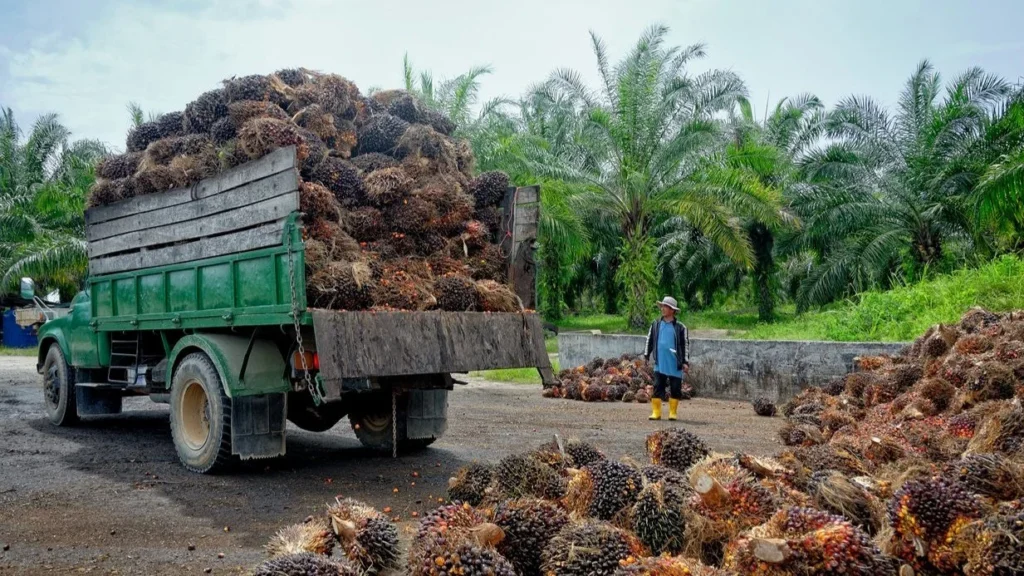Written by Amirul Hadi Noorhadi, MSPO
???? Highlights:
???? Criteria 1: Conducting the Social Impact Assessment (SIA)
???? Criteria 2: Employee’s safety and health
???? Criteria 3: Employment conditions
???? Criteria 4: Living conditions
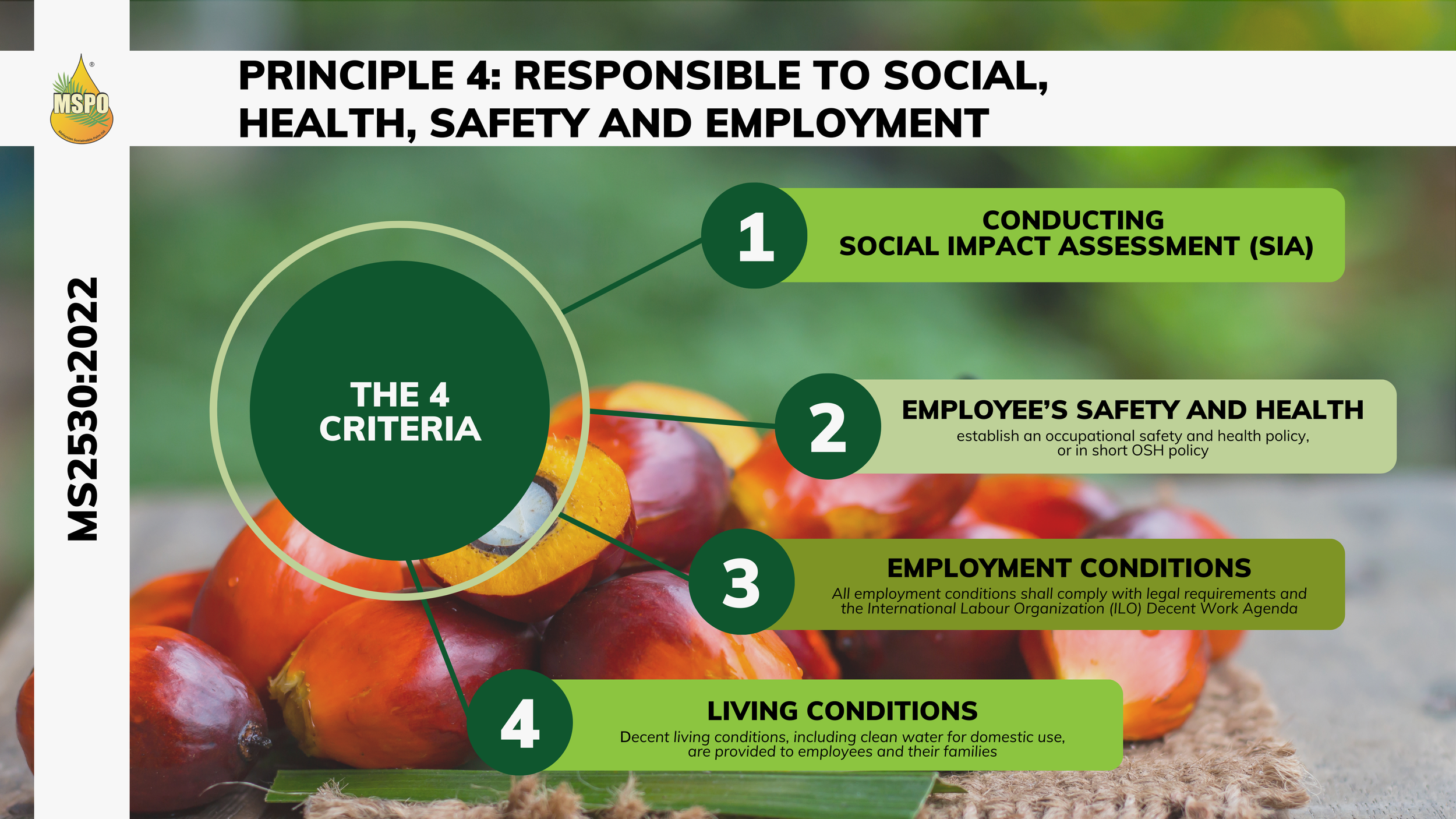
MS2530:2022 was launched by the Malaysian Palm Oil Certification Council (MPOCC) in March 2022. The MSPO Standards consist of FIVE (5) Principles and covers all important pillars of sustainability: People, Planet, and Prosperity (Scaling Up Nutrition, 2015). In this article, we will focus more on People, covered in Principle 4: Responsibility to Social, Health, Safety and Employment.
The term “People” refers more to the social life of a person, and this principle mainly addresses the sustainability of maintaining the workers’ social life sustainably, without prejudicing their rights as human beings and employees. This Principle contains FOUR (4) criteria and TWENTY (20) indicators.
1st Criterion: conducting the Social Impact Assessment (SIA)
This criterion contains THREE (3) indicators, which explain with whom the assessment should be conducted, what aspects should be incorporated into the assessment, and how frequently shall the SIA to be reviewed. The SIA Guideline was developed by MPOCC for organisations to conduct their assessment.
*However, MSPO Standards for Part 2-1: General principles for independent smallholders (less than 40.46 ha) is the only standard that does not require this criterion nor indicator.
2nd Criterion: Employee’s Safety and Health
Safety and health are one of the most important aspects that need to be focused on the worker’s social life. This criterion also contains THREE (3) indicators, requiring the organisations to establish an occupational safety and health (OSH) policy, where it shall be well communicated to the workers, well implemented in the workplaces, and all OSH records shall be well maintained. This criterion is important to ensure the workers or employees are able to work in a safe working environment. This criterion and indicator only requires independent smallholders to demonstrate that all workplaces and practices are safe.
3rd Criterion: Employment Conditions
This criterion comprises the most indicators in Principle 4, with a total of 12 indicators. Each indicator ensures that any organisation shall not practice forced or trafficked labour, meaning all work is voluntary. This criterion also ensures that there shall be no retaliation against human rights defenders and whistle-blowers.
All employment conditions shall comply with legal requirements and the International Labour Organization (ILO) Decent Work Agenda. It is the organisations’ responsibility to conduct operations with good governance and to uphold labour principles for their employees.
4th Criterion: Living Conditions
The last criterion encompasses TWO (2) indicators. The criterion emphasises on the living conditions of employees, i.e, housing, clean water for domestic use are provided to employees and their families. Decent living conditions will result in decent work. Therefore, living conditions for the employees play a very vital role to ensure the welfare of the employees.
In conclusion, this principle is very crucial as it covers the well-being of people, specifically the workers who work for organisations. It mainly involves the employment conditions and human rights protection. Please be reminded that this article only covers the gist of Principle 4 which is part of MS2530:2022 and should not be used as a reference for any audit on the MSPO scheme.
